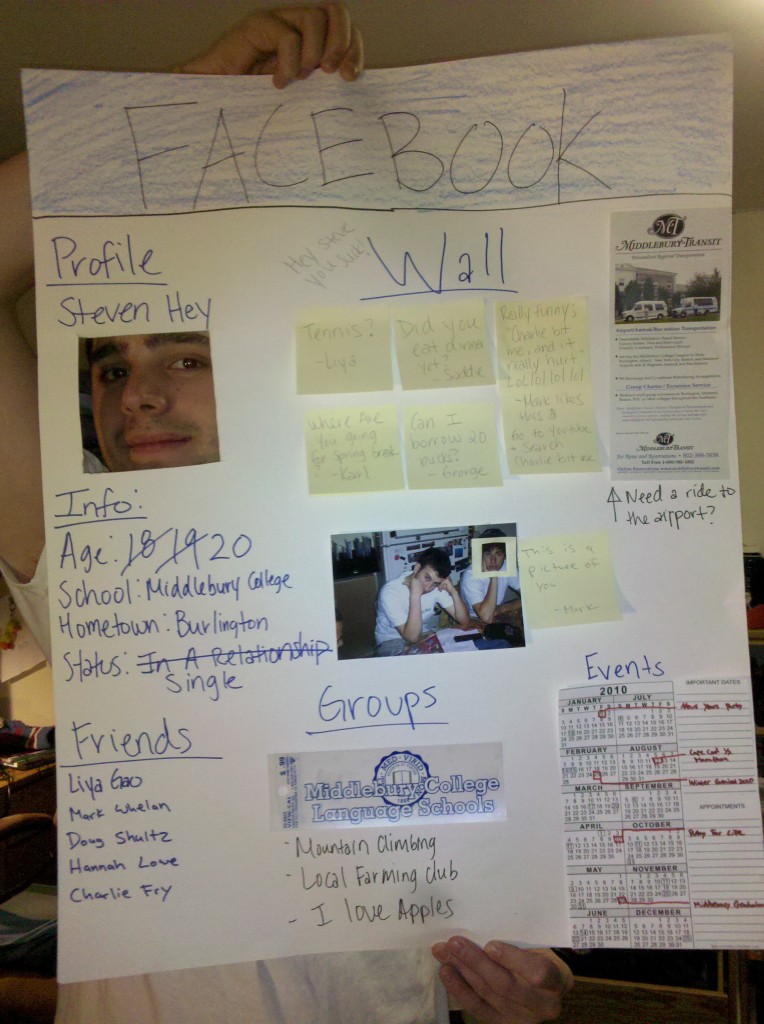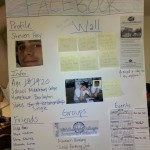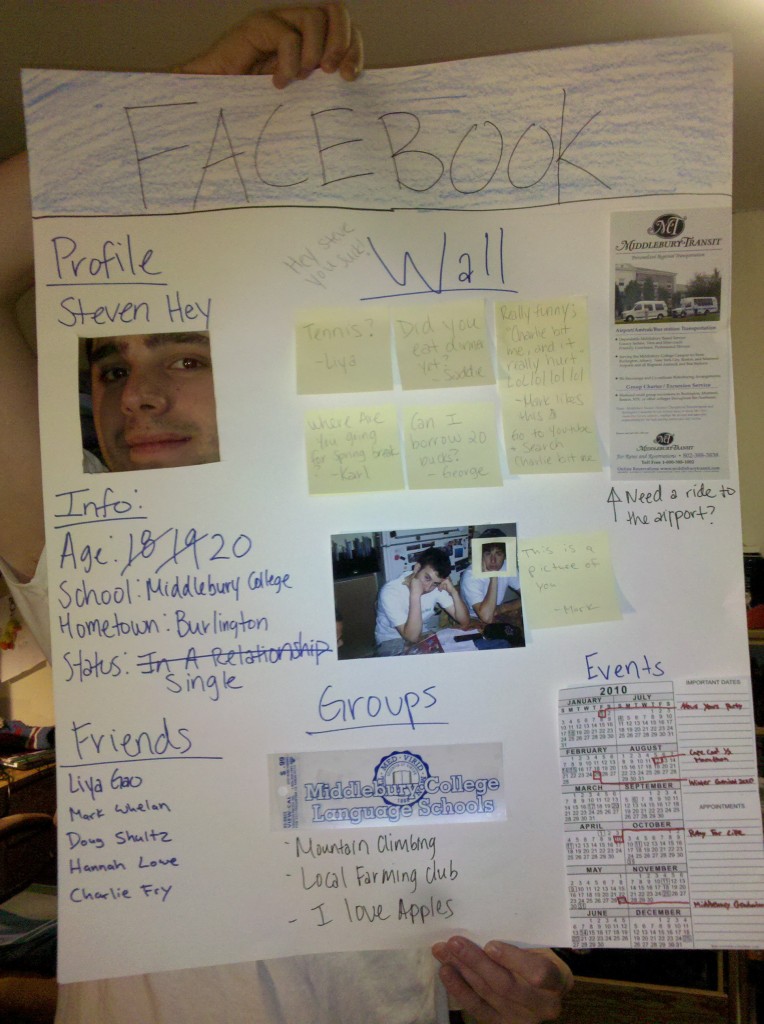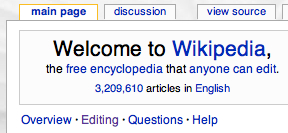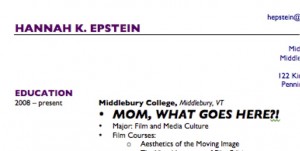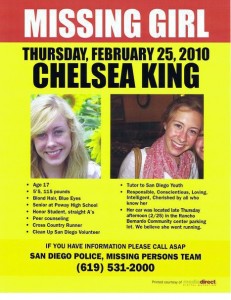This article reminded me a lot of my first blog post, “Facebook, for better or for worse.” First of all, it’s hard to believe that someone was sitting in their college dorm room on their computer, just like me, but came up with the whole system of Facebook. Incredible. Their lives are certainly no longer the same. But then again, none of ours are. We are always in contact with each other… we always know something about someone else’s life even if we weren’t looking for it, because we have our automatic “news feed.” I for one still do not like the news feed. Zuckerberg says he created it because Facebook was primitive before it. I don’t think Facebook and Primitive can be used in the same sentence unless there’s an “is not” thrown between them.
I don’t think I join Parr’s group demanding the news feed to be scrapped, but I definitely participated in the mass panic, aroused by the site of the new news feed. I guess I’m used to it now… I know it’s going to be there, and it’s visual design has improved to make it less cluttered feeling and confusing… but still I don’t find it necessary. If I want people to see something specifically about my page, I’ll let them know. Or if I want to find out what’s going on in someone else’s life, I look them up. I think the news feed adds to what makes Facebook such a good tool for procrastination. You can’t just go on and check if you have a message specifically for you… Instead you are given a page with hundreds of highlights, which drag you to other people’s pages even though you didn’t REALLY go on to do that. Also, as I talked about in my first Facebook blog and the Times article also mentions, is how Facebook can prolong relationships that need to fizzle out. The ex boyfriend. Facebook just allows bad relationships to end worse, because you can continue to play games and flaunt new budding relationships to the people of your past.
It is interesting to think about the point made, that Facebook actually may make us know ourselves better, or at least be more conscious of who we are. We constantly see how we are displayed in our profile and by what other people say about us, and we choose what we want to be shown and what not. But then, are we really becoming aware of who we are? Or just creating that electronic “avatar” of who we WANT to be?
Facebook has gotten to the point where it really does take over many of our lives, not just at the computer screen. When we’re out at parties or on a vacation, so many teens take photography’s strictly with Facebook in mind. They may even
It is scary to think that even if you finally get away from Facebook yourself and delete your account, you are still being defined by others in the Facebook community. They will still be there putting up pictures with you in them, and you won’t be “around” to see what they are.
I caught on to Facebook much faster than I am catching on to twitter. It seems that many people feel that way, and hate twitter at first. I can see though how it would be useful as a tool for finding answers to questions. I’ve already done that when I had a question about our paper project. I figured Professor Mittell was likely to receive a tweet alert on his phone, in his pocket, most all the time… So I tweeted and let him know I emailed with a question. Five minutes later, I had a response from him! But then back to the beginning again… I don’t feel the need to update people on what I’m doing throughout the day, nor do I feel the need to know what other people are doing. I still rarely use my Facebook “status” unless it’s to say something like, “home for break,” something of a longer duration

